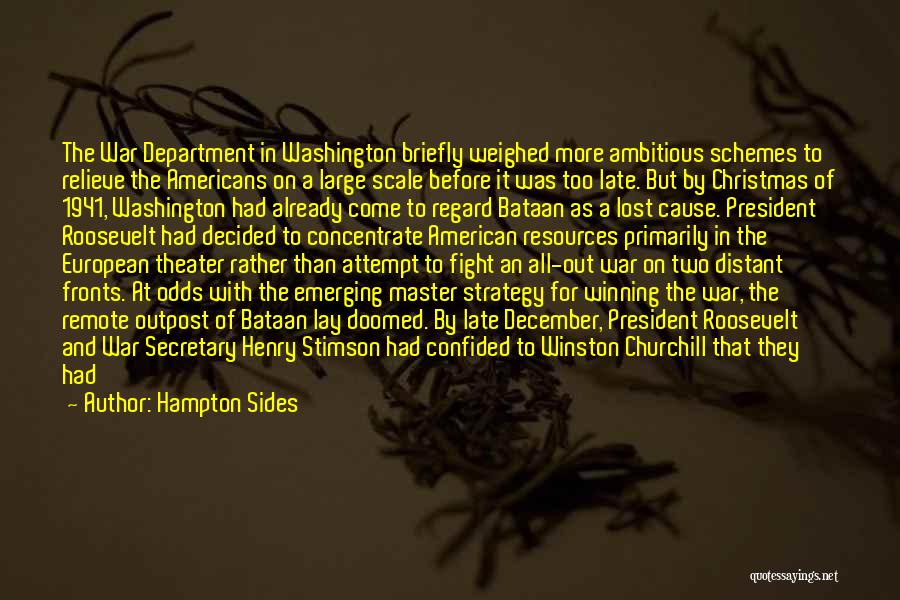Famous War Strategy Quotes & Sayings
Enjoy reading and share 2 famous quotes about Famous War Strategy with everyone.
Top Famous War Strategy Quotes

The War Department in Washington briefly weighed more ambitious schemes to relieve the Americans on a large scale before it was too late. But by Christmas of 1941, Washington had already come to regard Bataan as a lost cause. President Roosevelt had decided to concentrate American resources primarily in the European theater rather than attempt to fight an all-out war on two distant fronts. At odds with the emerging master strategy for winning the war, the remote outpost of Bataan lay doomed. By late December, President Roosevelt and War Secretary Henry Stimson had confided to Winston Churchill that they had regrettably written off the Philippines. In a particularly chilly phrase that was later to become famous, Stimson had remarked, 'There are times when men have to die. — Hampton Sides

A precursor to the Social Darwinists, Hobbes argued from th premise that the primordial human condition was a war fought by each against each, so brutal and incesssant that it was impossible to develop industry or even agriculture or the arts while that condition persisted. It's this description that culmintes in his famous epithet "And the life of man, solitary, poor, brutish, and short." It was a fiction to which he brought to bear another fiction, that of the social contract by which men agree to submit to rules and a presiding authority, surrendering their right to ravage each other for the sake of their own safety. The contract was not a bond of affection or identification, bot a culture or religion binding togetehr a civilization, only a convenience. Men, in his view, as in that of many other European writers of the period, are stark, mechanical creatures, windup soldiers social only by strategy and not by nature ... — Rebecca Solnit





